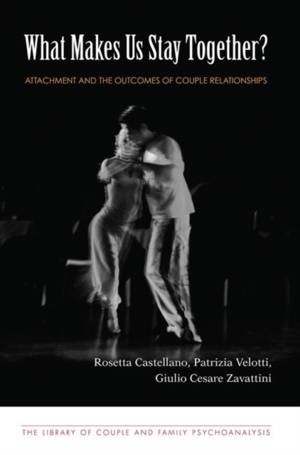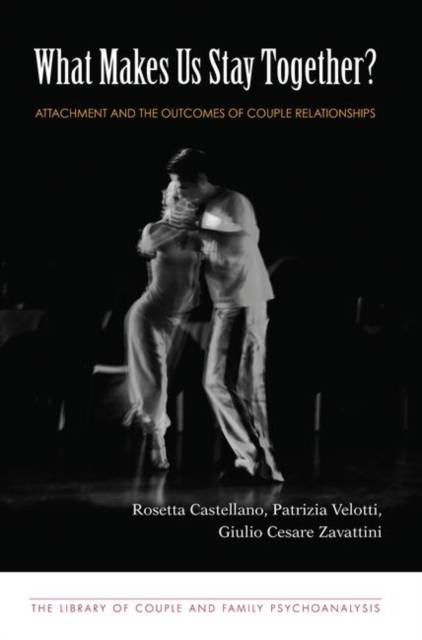
- Afhalen na 1 uur in een winkel met voorraad
- Gratis thuislevering in België vanaf € 30
- Ruim aanbod met 7 miljoen producten
- Afhalen na 1 uur in een winkel met voorraad
- Gratis thuislevering in België vanaf € 30
- Ruim aanbod met 7 miljoen producten
Zoeken
What Makes Us Stay Together?
Attachment and the Outcomes of Couple Relationships
Rosetta Castellano, Patrizia Velotti, Giulio Cesare Zavattini
€ 182,45
+ 364 punten
Uitvoering
Omschrijving
In recent years commentators have speculated on the "collapse" of the couple and the family, highlighting the increasing fragility of couple relationships making them vulnerable to crises and break ups. Now, more than ever, and prompted by changes that have shaken our assumptions about socio/cultural context, the reasons that make couple relationships unstable are sought in the negotiations and redefinitions required by the changes themselves. New types of families are emerging and consequently new issues are being raised about the dynamics of family relationships. This book underlines the role of attachment as a central motivational system in couple relationships, and focuses on the relationship between past and present experiences in determining choices, perceptions, and feelings in couple relationships. It considers what other motivational systems interact with attachment in constituting a couple's dynamics, and looks at aspects more directly experienced by couples: in particular, how they feel about their relationship, especially in terms of the degree of intimacy between them (something that attachment theorists might look at in evaluating how "good" a relationship is).
Specificaties
Betrokkenen
- Auteur(s):
- Uitgeverij:
Inhoud
- Aantal bladzijden:
- 174
- Taal:
- Engels
- Reeks:
Eigenschappen
- Productcode (EAN):
- 9780367102319
- Verschijningsdatum:
- 5/07/2019
- Uitvoering:
- Hardcover
- Formaat:
- Genaaid
- Afmetingen:
- 157 mm x 234 mm
- Gewicht:
- 476 g

Alleen bij Standaard Boekhandel
+ 364 punten op je klantenkaart van Standaard Boekhandel
Beoordelingen
We publiceren alleen reviews die voldoen aan de voorwaarden voor reviews. Bekijk onze voorwaarden voor reviews.











